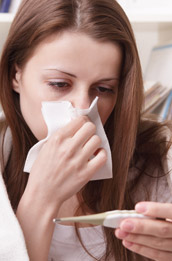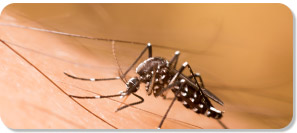
Also known as Influenza, flu is an infection of the respiratory system whose main complication is the severe acute respiratory syndrome, responsible for a large number of hospital admissions. The flu virus penetrates the body, most of all through the mucosa, the skin that coats nose, mouth and eyes.
The transmission can occur in a direct way – through the secretion of the respiratory tract of a person contaminated, while speaking, sneezing or coughing – or in an indirect way – through the hands that, after touching surfaces recently contaminated, can carry the infectious agent directly to the mouth, nose and eyes.
Therefore, in order to prevent flu it is fundamental to:
- Wash your hands with water and soap (after coughing or sneezing; after using the bathroom, before eating, before touching your eyes, mouth and nose)
- Avoid touching your eyes, nose or mouth after contact with surfaces
- Use paper tissue and protect your mouth and nose with handkerchief when coughing or sneezing, in order to avoid the dissemination of aerosols
- Avoid crowds and closed environments
But if, in spite of the prevention, some symptoms occur such as fever, headache, muscular pain, chills, weakness, cough, throat ache, sneezing and runny nose, look for medical assistance in a health unity.








